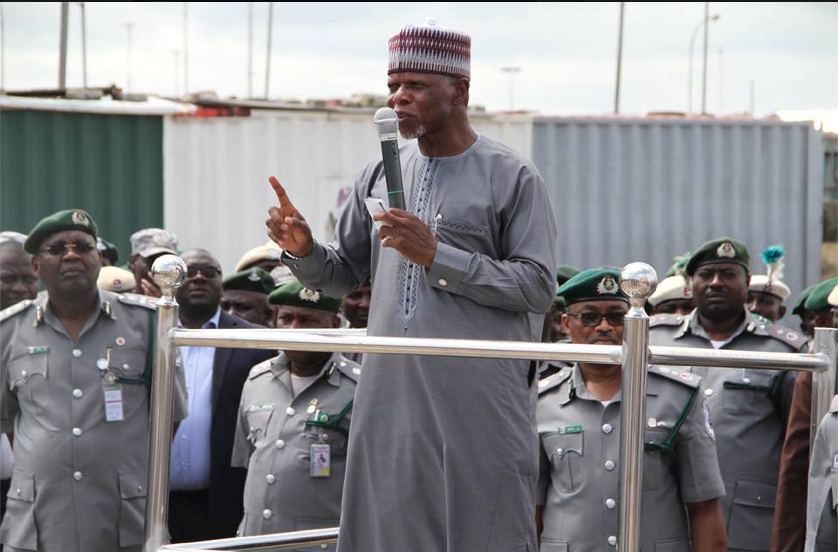The Nigeria Customs Service, NCS has disclosed that the E-Customs Project is intended at achieving an end to end automation of customs processes in Nigeria and will revolutionise trade, improve on national security and save business time in transactions.
The spokesman for the service, Joseph Attah made the disclosure in Abuja.
He added that unknown to many, the recently approved E- Customs deal by the Federal Government is one unsung trade masterstroke of the Muhammadu Buhari’s administration with the capacity to engender efficiency, transparency and productivity in line with global best practices.
The NCS according to him, was part of the project from conception, planning to the stage of final approval by the Federal Executive Council.
Attah who added that the project is not a concession as reported by a section of the media, also described it as a project aiming to eradicate tax and import duties’ evasion, increasing revenue generation with the introduction and interplay of the Unified Customs Management System, e-Port, Logistic Monitoring and electronic-Cargo Tracking.
READ ALSO: Customs server failure costs us N200bn yearly- Freight Forwarders
He added that the project will also feature Mobile Enforcement Systems, which all imports and exports would go through to be undertaken by Messers E. Customs HC Project Limited, and is expected to run for 20 years.
The end to end automation of customs processes and procedures had the inputs of top management of Nigeria Customs from the conception, due diligence and final approval stages.
According to Customs, the automation is to be driven by four companies that emerged after due diligence, Bionica Technologies W.A. Limited was the preferred bidder after a rigorous evaluation process.
The company, according to official sources presented its bid together with a consortium namely, Huawei, Smiths Detection, Nuctech of China, Larsen & Toubro Group, and Paramount Group, Huawei Technology.
The Africa Finance Corporation (AFC) came in as both an equity investor and the Mandated Lead Arranger (MLA) which will facilitate loan syndication with foreign and local banks for the $3.1billion contract.
Attah said, ”The project was never imposed on the Nigeria Customs Service. We were part of it from the stages of conception to final approval by the Federal Executive Council.
”In the history of customs modernisation in Nigeria, this is in fact the one that has the full buy-in and inputs from the service. Some media reports that the project was imposed on the NCS and capable of usurping statutory functions are far from the truth ” he said.
“The Comptroller General of Customs, Col. Hameed Ali (Rtd) is not only aware of it from the beginning, it also has his full support all the way.
“The modernisation initiative has components that involve very technical aspects of our operations, which includes scanning that requires expertise to ascertain exactly what is being brought in.
READ ALSO: Customs intercepts Dubai-bound suspect with over 2000 ATM Cards
“I want to add that Nigeria is not doing anything strange in all of these because the project itself is in line with World Customs Organisation (WCO) framework of standards that members state Customs administration can collaborate with experts to achieve modernisation that will enhance trade facilitation, National security and other objectives.
“The fears about job loss is being exaggerated as some of this equipment like scanners requires additional manpower at the sites in addition to the regular service workforce.
At the advanced level of a fully automated customs administration, Nigeria under the E-Customs regime will be able, after due profiling over time to recognise very compliant traders as Authorised Economic Operators (AEOs).
Presently, there is no corporate AEO in the country despite some port users being placed on fast track.
Its trade facilitation strength at the advanced stage would have interfaced with bodies like Nigerian Association of Chambers of Commerce, Industry, Mines, and Agriculture NACCIMA, Manufacturers Association of Nigeria (MAN) and Lagos Chamber of Commerce and Industry (LCCI)













